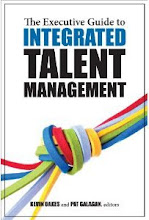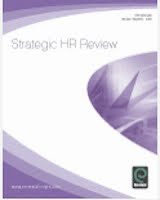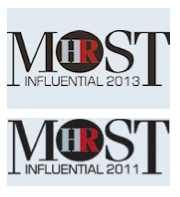The CEB has been running another successful ReImagineHR conference in London, including some of their client case studies and also more of their excellent research.
I think some of the most powerful insights this year focus on performance management and reward.
Performance management:
- Clearly needs to change - only 4% of HR leaders feel they are effective at accurately assessing employee performance
- According to CEB, removing ratings isn’t the way to do it and in fact despite the hype around it less than half of HR leaders are interested in doing this.
- Removing ratings reduces the amount of time managers spend on performance management together with the quality of their performance conversations and negatively impacts employee engagement.
I think the most important suggestion which I completely agree with is that HR leaders should make an informed decision about removing ratings considering both their organisation’s situation and how removing ratings will affect managers and employees.
I am personally very pleased that so many organisations are dropping reviews or ratings as it was never a process I appreciated as either appraiser or appraisee, but that’s beside the point. It really doesn’t matter whether it’s the trend or not - the only thing which matters is what is right for a particular business, and the employees who work in it.
Linked to this, it’s important to note there is never one perfect solutions - ratings helps do some things well and fails at others, no ratings does other things well but suffers different problems too. So I also agree with the CEB’s advice that when organisations do remove ratings they need to take other appropriate actions to mitigate what may be the negative consequences.
For example to ensure that employees still have a positive perception of pay differentiations, organisations should 1. guide managers to base pay decisions on simple criteria such as performance against role in order to identify employees who should receive the highest awards; and 2. help employees understand how their contributions and the organisational context have informed their pay decision in order to demonstrate how pay decisions were made fairly.
The CEB therefore suggest bigger and easier gains can be made by focusing on other changes in performance management, e.g.:
- Provide Ongoing, Not Episodic, Performance Feedback
- Make Performance Reviews Forward Looking, Not Backward Looking
- Include Peer, Not Just Manager, Feedback in Evaluating Performance
Reward:
The other issue for many organisations is how they reward people appropriately without the crutch of performance ratings.
CEB research suggests this may not be a particularly significant issue as organisations would do better to give a few big pay increases for large differences in performance rather than lots of little increases for small differences.
I agree with this logic too though I worry about the impact of large differentials on the performance of CEB’s network contributors. That could be reduced by paying for different types of performance, for example improvements in, as well as exceptional levels of, performance.
CEB research suggests this may not be a particularly significant issue as organisations would do better to give a few big pay increases for large differences in performance rather than lots of little increases for small differences.
I agree with this logic too though I worry about the impact of large differentials on the performance of CEB’s network contributors. That could be reduced by paying for different types of performance, for example improvements in, as well as exceptional levels of, performance.
But the key comes down, once again, to the power of conversations - enabling managers to use narratives rather than ratings to explain compensation decisions to employees, helping them understand the impact of their performance and contribution.
Another great set of privations and I look forward to next year’s conference.
Another great set of privations and I look forward to next year’s conference.
- Consulting Research Speaking Training Writing
- Strategy - Talent - Engagement - Change and OD
- Contact me to create more value for your business
- jon [dot] ingham [at] strategic [dash] hcm [dot] com






























0 comments:
Post a Comment
Please add your comment here (email me your comments if you have trouble and I will put them up for you)